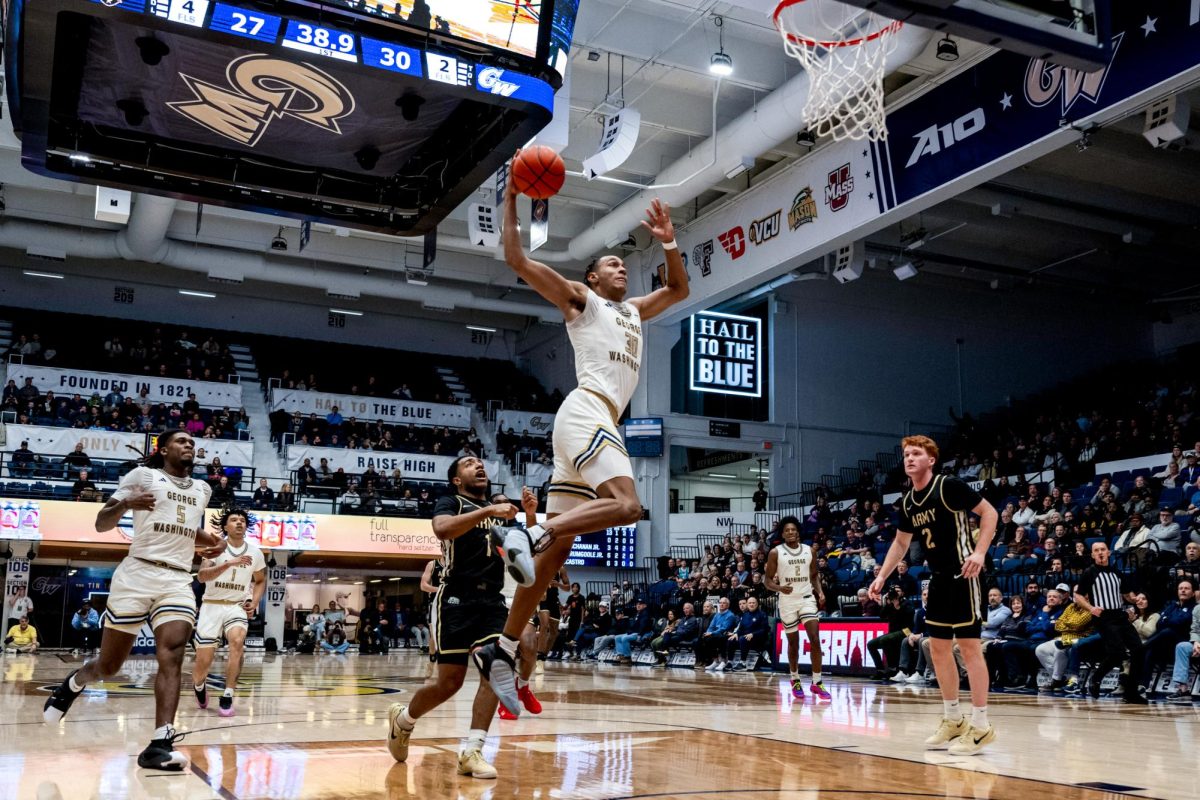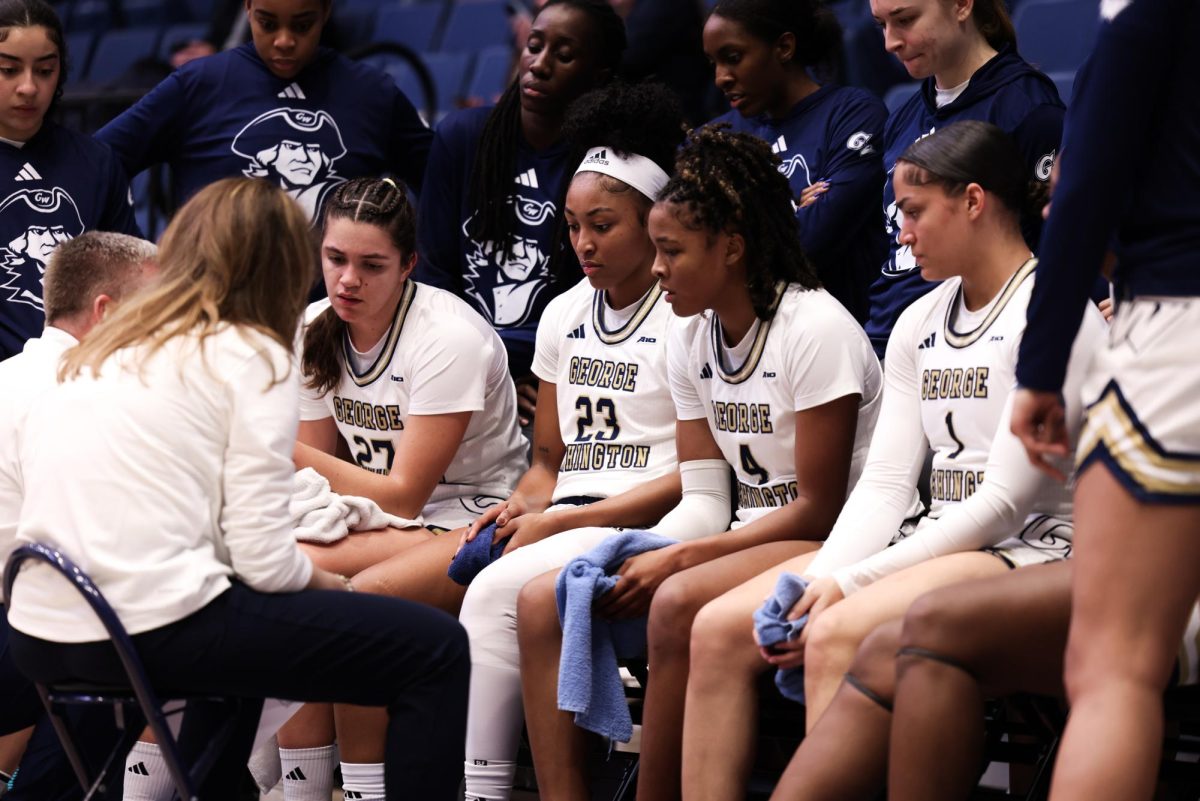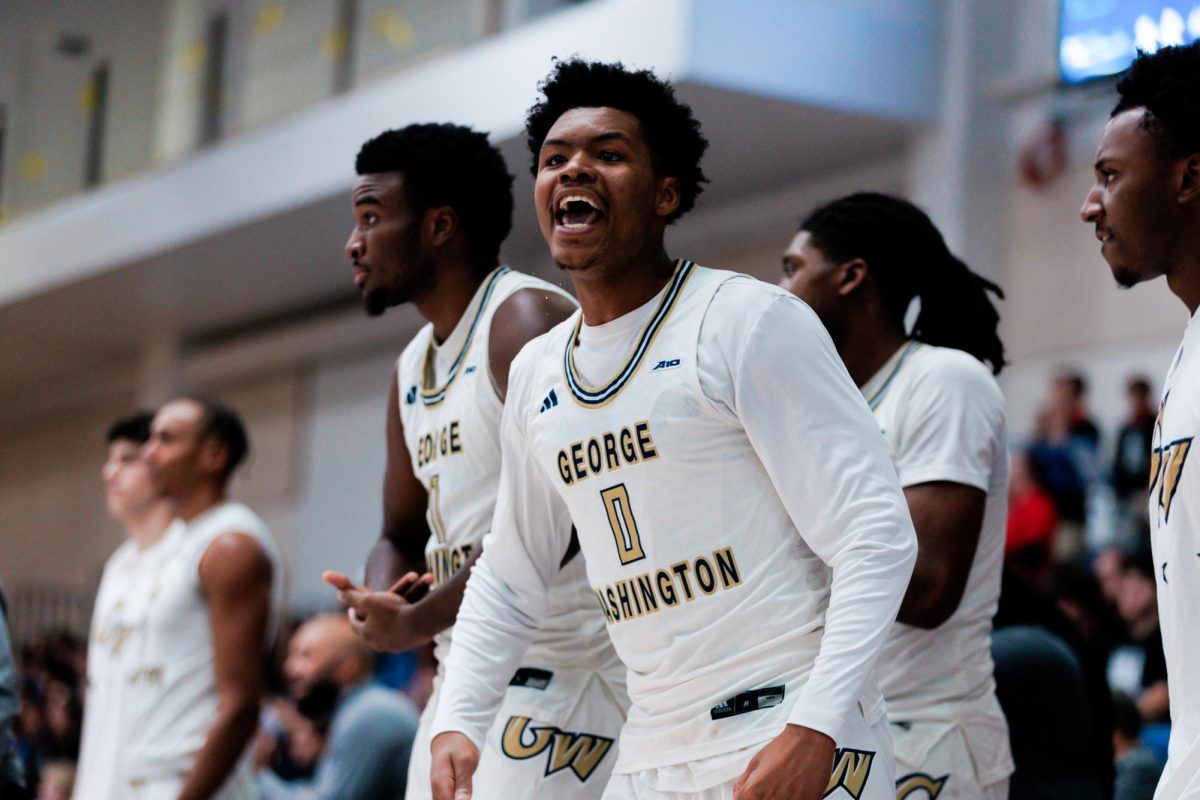Tom Zebroski and Eric Cantrell have seen a lot of each other over the past three years. As teammates on the GW baseball team since 2008, the two spent hours together at practice and in games, not to mention their time together last summer playing for the same team in the prestigious Cape Cod Baseball League.
So perhaps it should come as little surprise that even after their GW careers come to a close, the two former Colonials will be spending a little more time together this summer. Both players were taken by the Kansas City Royals in Major League Baseball’s First-Year Player Draft.
After so much time together, it’s not a shock that Zebroski and Cantrell sound alike when talking about their new statuses as professional baseball players.
“It’s really exciting, they’ve got a great organization,” Cantrell said of the Royals. “They teach baseball the right way, which is awesome. I’m very privileged to be a part of it.”
“Everything I’ve heard about the organization, especially the minor leagues, has been really positive,” Zebroski said, echoing his past and potential-future teammate. “I’m looking forward to being a part of that.”
As the pair prepared to head to the Royals’ spring training facility in Surprise, Ariz. June 12 for each player’s first taste of professional baseball, they can both look back at remarkably similar levels of success this past season for GW.
Cantrell, a pitcher, was named to the Atlantic 10 First-Team after leading the conference in strikeouts and tying for the league lead in wins with eight. His strikeout total of 114 was the highest ever for a Colonial pitcher.
Zebroski, a shortstop, was even more dominant, earning the title of A-10 Baseball Player of the Year after leading the conference in batting average, hits, home runs, runs scored, total bases, and slugging percentage. Like Cantrell, Zebroski also managed to set a few GW records, breaking single-season program records for hits, runs scored and total bases.
But while their most recent seasons may have been comparable, their draft experiences were not. Cantrell, a junior, was the more heavily scouted of the two players. Once he was drafted in the seventh round by Kansas City, the right-handed hurler had a decision to make: would he stay at GW and play one more season for the Colonials, or would he sign a contract and leave Foggy Bottom for the pros? After thinking it over, Cantrell chose the latter, although the decision, he said, wasn’t easy to make.
“It was actually a very, very difficult decision. I love being at GW, I love the team, I got a lot of friends there. I’d love to be back for my senior year and you can’t really put a financial value on that,” said Cantrell, who officially signed his contract June 9 but declined to discuss any financial specifics. “Based on what I want to do for my career, and say I went back and I got injured, that would crush me.”
“It was hard to say no to coming back to school for a senior year and getting a college degree,” he added. “This has been my dream since I was pretty young, I didn’t want to let it slip through my fingers.”
As Cantrell pondered whether or not to return to school, Zebroski, a senior, was left scratching his head as the later rounds of the 50-round draft progressed without the shortstop’s name being called. Because the MLB draft isn’t televised like its counterparts in the NFL and the NBA, Zebroski was forced to follow the selection online, a process he called “very stressful.”
“I was sitting in front of my computer for all of Tuesday and all of Wednesday, watching every single name getting called,” Zebroski said.
“It’s a lot of confusion, because I’ve played with so many of the guys that get drafted and I’m just seeing their names go and I’m knowing that I’m as good or better than them,” he added. “You’re wondering what they’re looking at and hoping that someone calls your name.”
Once his name was called in the 45th round, Zebroski said he breathed “just about the biggest sigh of relief possible,” before the phone calls and text messages started, a flood of congratulations that he said hasn’t stopped yet.
As for their futures with the Royals organization, neither one was sure what this summer would hold. Minor league baseball is filled with question marks, and there are no guarantees that Zebroski and Cantrell’s careers will remain intertwined.
Once they receive their minor league assignments, the GW duo could be split and send to opposite ends of the country, maybe to North Carolina to play for the Burlington Royals of the Appalachian League, or maybe to Idaho to suit up with the Idaho Falls Chukars of the Pioneer League.
Neither one seems particularly concerned with that potentiality though. They both, of course, agree that having one other to lean on will be a plus as they begin their transition into their lives as professional athletes.
“It is comforting, honestly,” Cantrell said. “It’s a new stage of your life and it’s nice to have somebody there that you’ve known and had some familiarity with.”
“It’s huge,” Zebroski agreed. “You’re going into a new environment and it really helps to have a friend and a teammate doing the same thing with you. It just makes everything more comfortable and makes you feel more relaxed. That’s a big advantage when some people are just completely on their own.”






